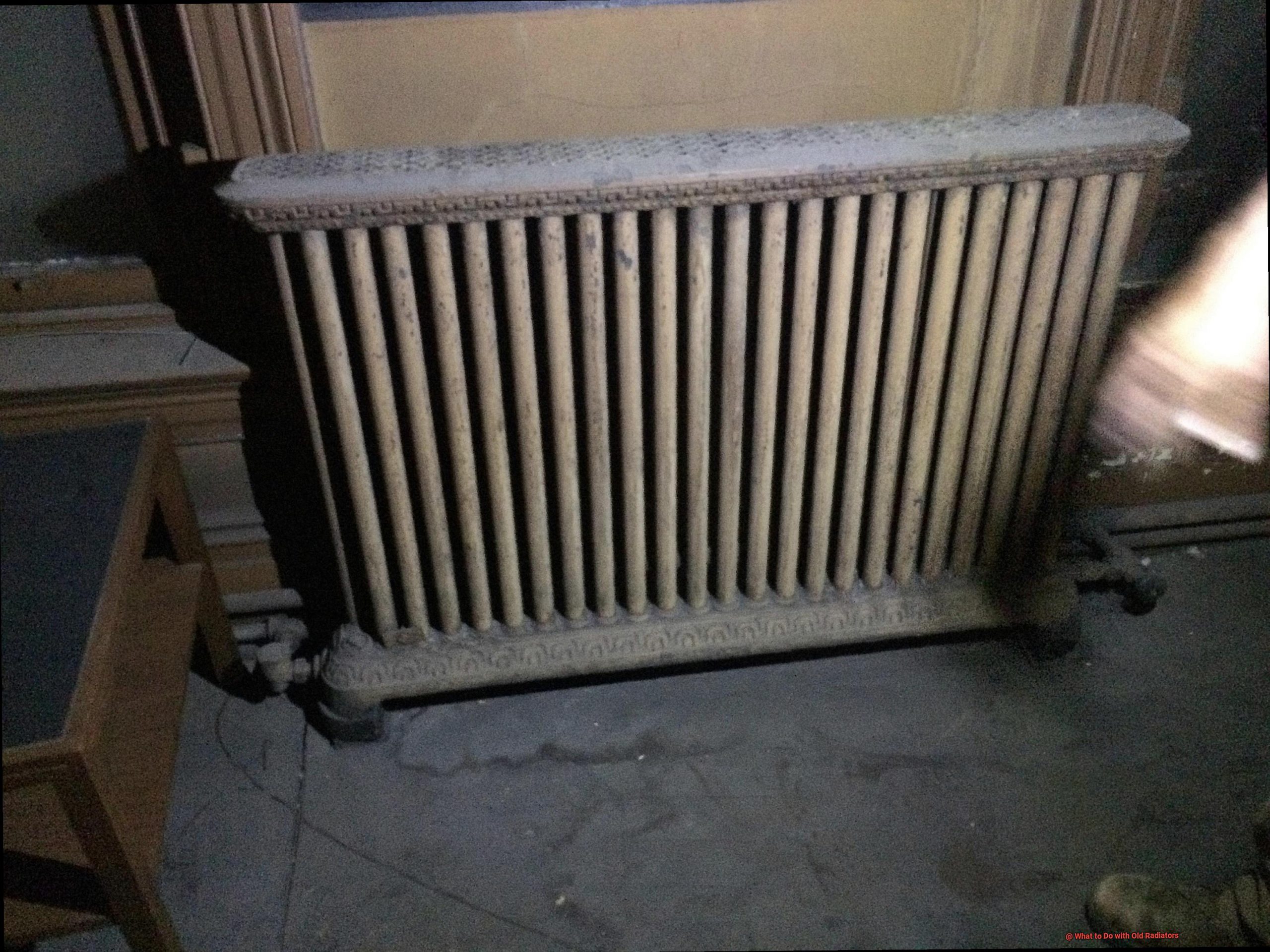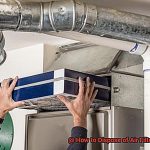Radiators are the unsung heroes of our homes, keeping us warm and cozy during the colder months.
But what happens when they become outdated or inefficient? It’s a common dilemma that many homeowners face: what to do with old radiators.
Fortunately, there are several options available that don’t involve sending them to the landfill. One option is to repurpose old radiators into something new and useful.
With some ingenuity and creativity, they can be transformed into stylish pieces of furniture or decor. For example, an old radiator can be turned into a cozy bench with built-in storage or used as a unique shelf or room divider.
Another option is to sell old radiators. Believe it or not, there is a market for antique or vintage radiators, and they can fetch a good price if they’re in good condition.
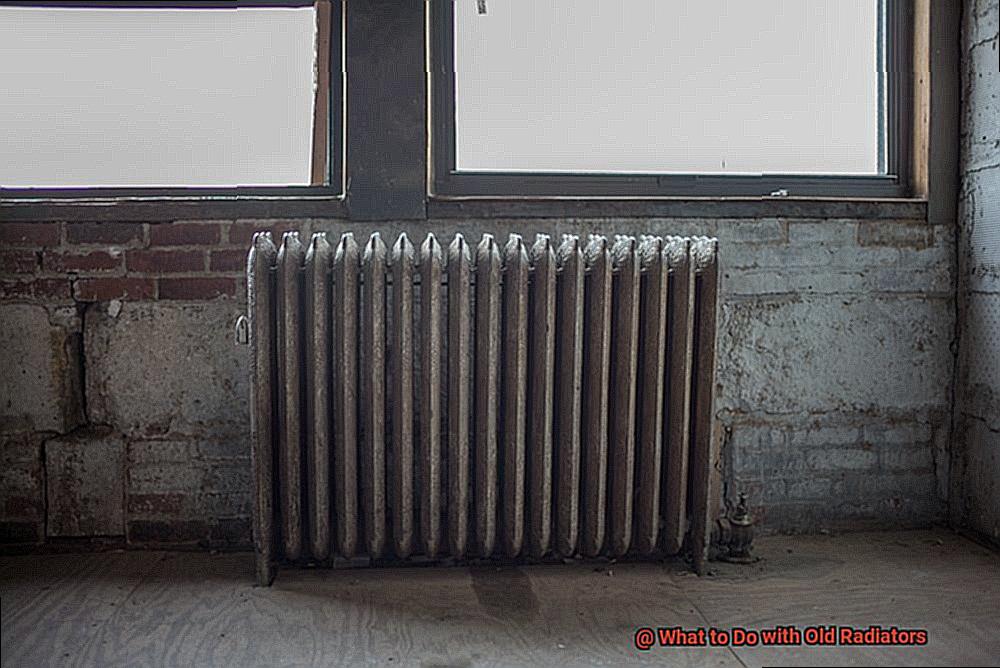
There are even companies that specialize in radiator recycling and will pay for old radiators, making it both profitable and eco-friendly. If all else fails, contacting a scrap metal dealer is always an option.
Most scrap metal dealers will accept old radiators and recycle the metal for other purposes. By doing this, you’re not only disposing of your old radiators responsibly but also contributing to reducing waste in the environment.
In conclusion, getting rid of old radiators doesn’t have to be a headache. From repurposing them to selling or recycling them, there are endless possibilities available to homeowners.
By taking advantage of these options, you’ll not only be environmentally responsible but also creative and resourceful – turning something outdated into something new and valuable.
What Are Old Radiators?
Contents
These vintage heating devices were commonly used in older homes and buildings before modern heating systems became widely available.
Old radiators are often made of cast iron, which makes them durable and long-lasting. They can be identified by their size, shape, and ornate designs or decorative features.
While old radiators may no longer be in use for their original purpose, they can still have value as decorative objects or as materials for repurposing. Many antique dealers and salvage yards will buy old radiators for their aesthetic appeal, especially if they are in good condition.
You could also consider donating them to a local charity or non-profit organization if they are still in good working condition. Old radiators can be repurposed into a variety of useful objects such as shelves, coat racks, or even garden trellises.
With a little creativity and some basic DIY skills, an old radiator can become a unique and functional piece of home decor. Imagine the satisfaction of creating something new and useful from an old item that would otherwise go to waste.
In addition to their decorative or repurposing potential, old radiators may also have value as scrap metal. The cast iron used to make them is a valuable material that can be melted down and reused.
However, before selling an old radiator for scrap, it’s important to check for any hazardous materials that may be present, such as lead paint or asbestos insulation. These materials should be safely removed by a professional before the radiator is scrapped.
Why Dispose of Old Radiators?
Firstly, old radiators are highly inefficient and struggle to meet modern heating demands.
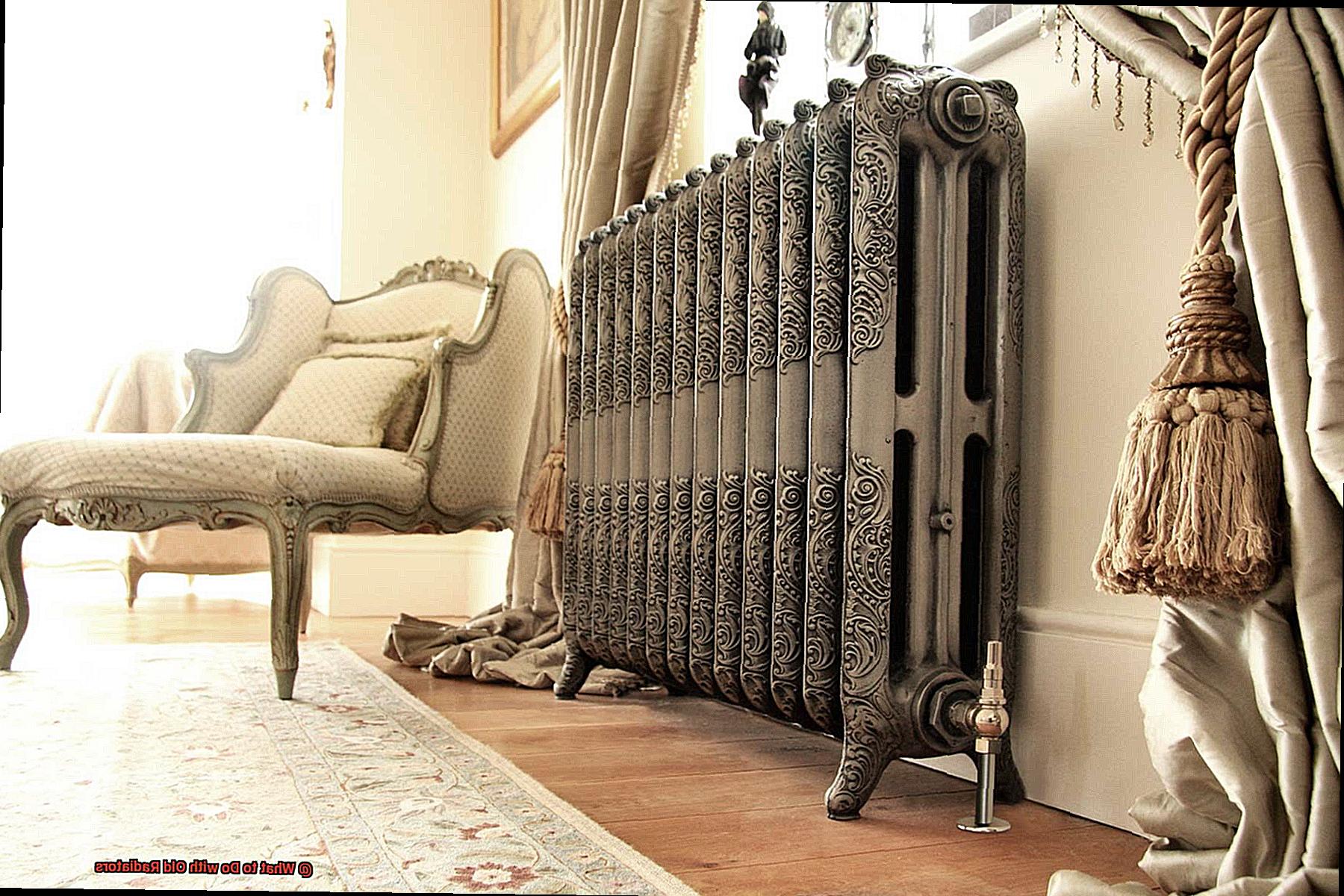
It’s like trying to run a marathon in worn-out shoes – it just won’t work efficiently. Moreover, older radiators often have leaks or damages that cause them to lose heat and increase energy bills.
By disposing of them and upgrading to newer, more efficient models, you can save money on your energy bills while keeping your home warm and cozy. Another compelling reason to dispose of old radiators is their potential impact on the environment.
Many older radiators contain hazardous materials such as lead or asbestos, which can be harmful if not disposed of properly. By disposing of them safely, you can prevent the release of these hazardous materials into the environment and safeguard public health.
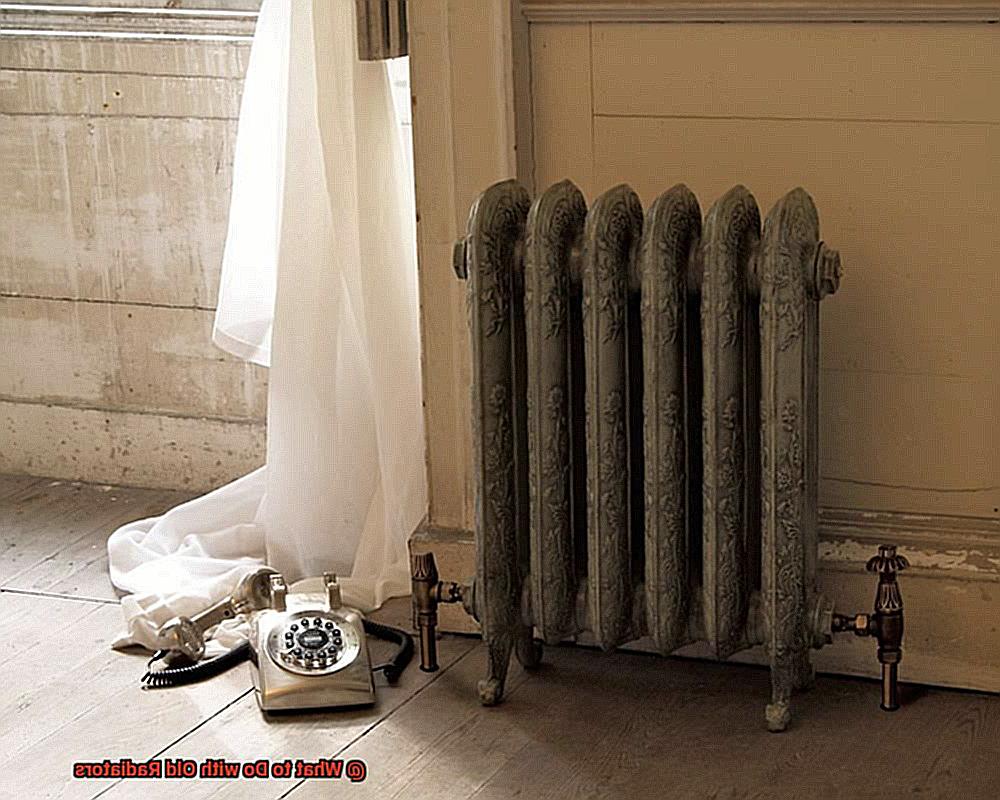
Furthermore, if your old radiator is still in working condition, it could be reused or recycled instead of ending up in a landfill. This is not only environmentally friendly but also contributes to sustainable living.
Last but not least, disposing of old radiators can free up valuable space in your home. Radiators can take up a lot of room, especially if they are bulky and outdated.
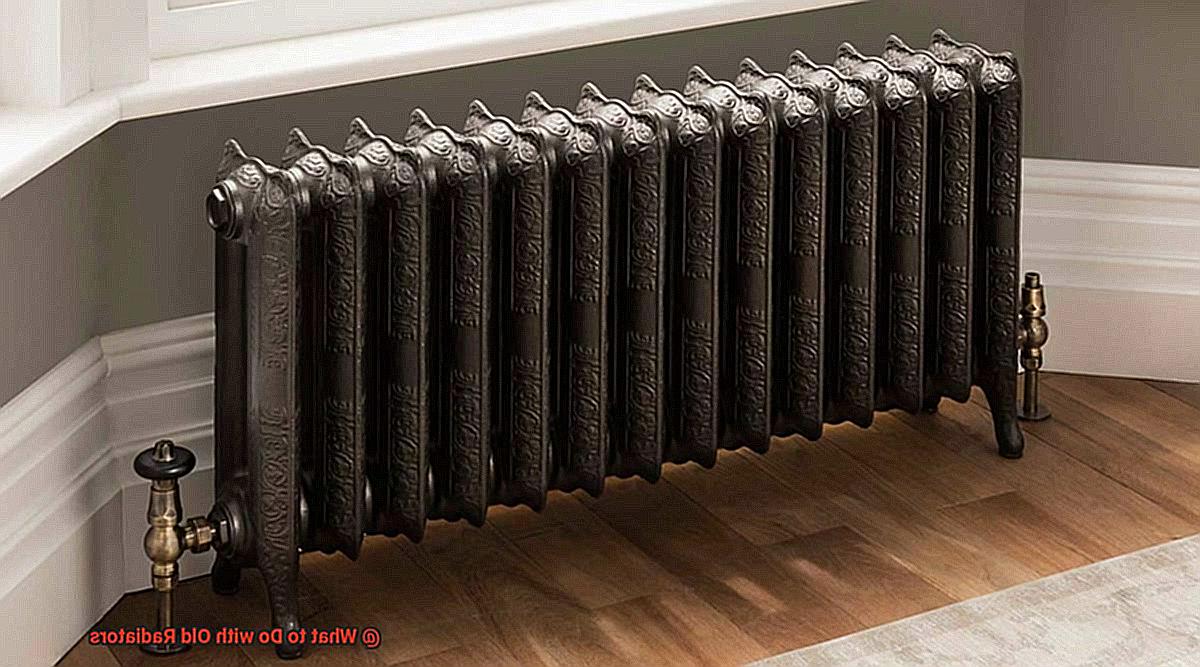
This newfound space could be used for other purposes or simply make your home look more spacious and organized. In conclusion, disposing of old radiators is essential for homeowners looking to increase efficiency, reduce energy bills, protect the environment, and create more space in their homes.
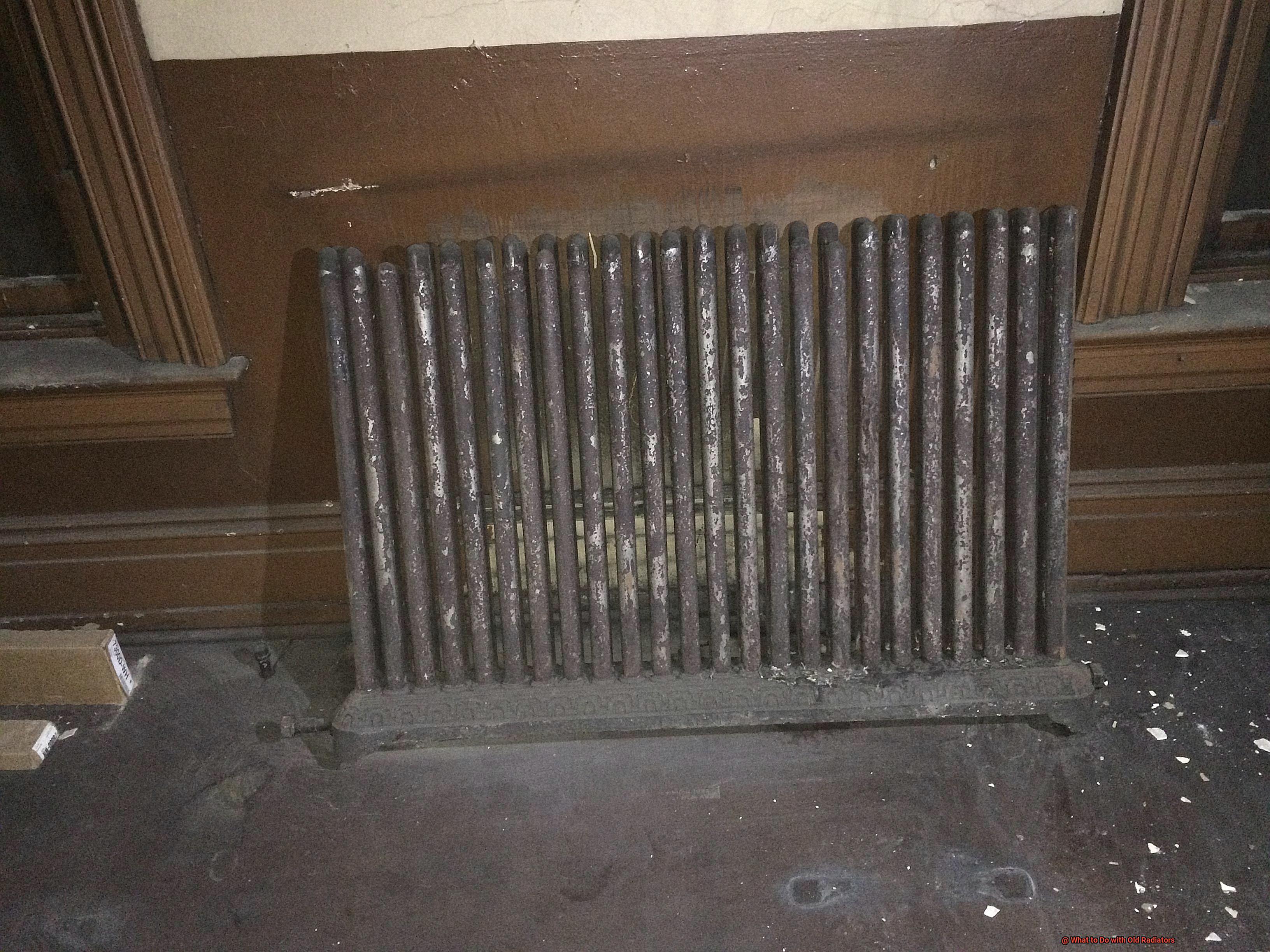
Recycling Old Radiators
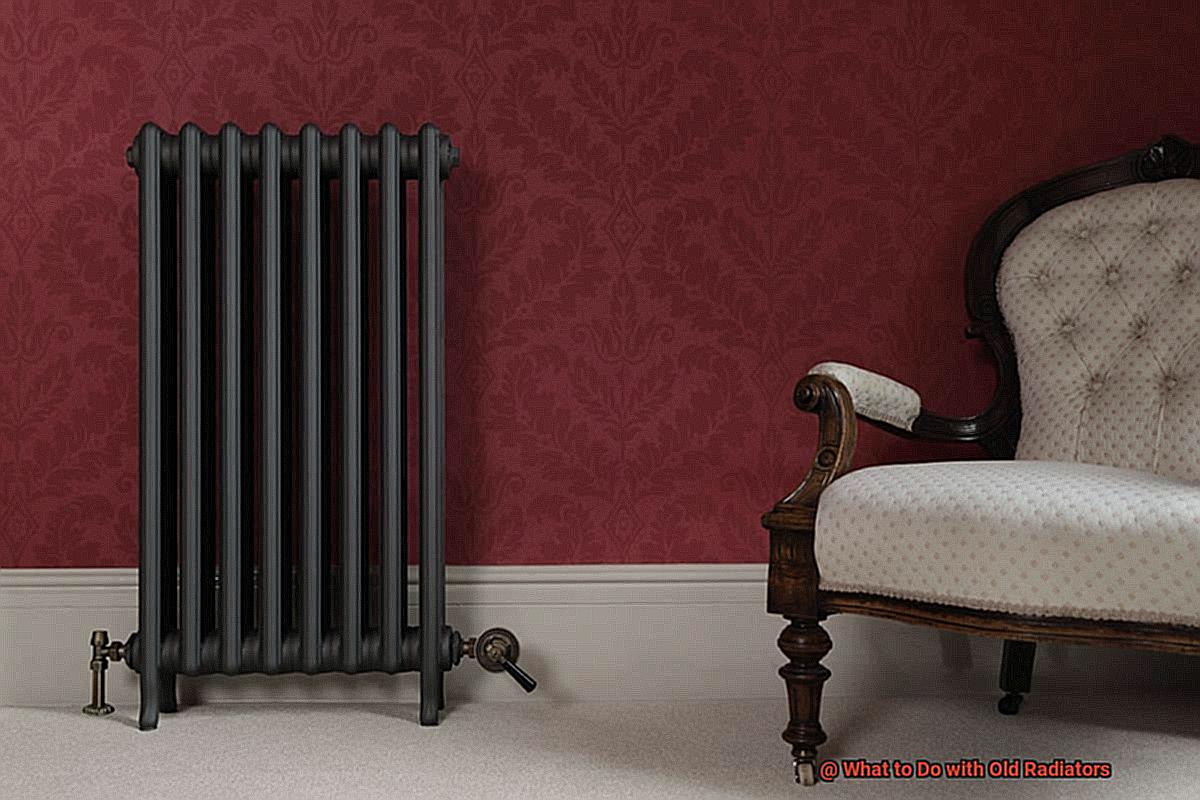
Recycling old radiators is a smart and easy way to do just that.
Radiators are typically made of a mixture of metals like copper, aluminum, and iron. By recycling them, these metals can be reused in other products instead of ending up in landfills.
This helps to preserve natural resources, reduce waste, and benefit the economy. If you’re unsure of where to go for radiator recycling, there are several options available.
You can take them to a local scrap metal dealer who will pay you based on the radiator’s weight and current market price for scrap metal. However, not all dealers accept radiators due to hazardous materials such as lead and mercury.
It’s best to check with them beforehand to ensure that they accept radiators. Alternatively, you can contact a local recycling center or waste management facility that specializes in handling large items like radiators.
Many of these facilities offer pickup services, making it easy to dispose of your old radiators safely. It’s important to note that radiators should never be disposed of in landfills since they contain harmful materials that can seep into the soil and water supply.
Recycling old radiators responsibly ensures that these hazardous materials are safely removed and disposed of. In summary, recycling old radiators is an excellent way to dispose of them while also contributing to sustainable living.
Donating Old Radiators
Instead, consider donating them to organizations and charities that can put them to good use, while you give back to your community. Donating old radiators is an excellent way to reduce waste and preserve natural resources, while also helping low-income families, the elderly, schools, and community centers stay warm during colder months.
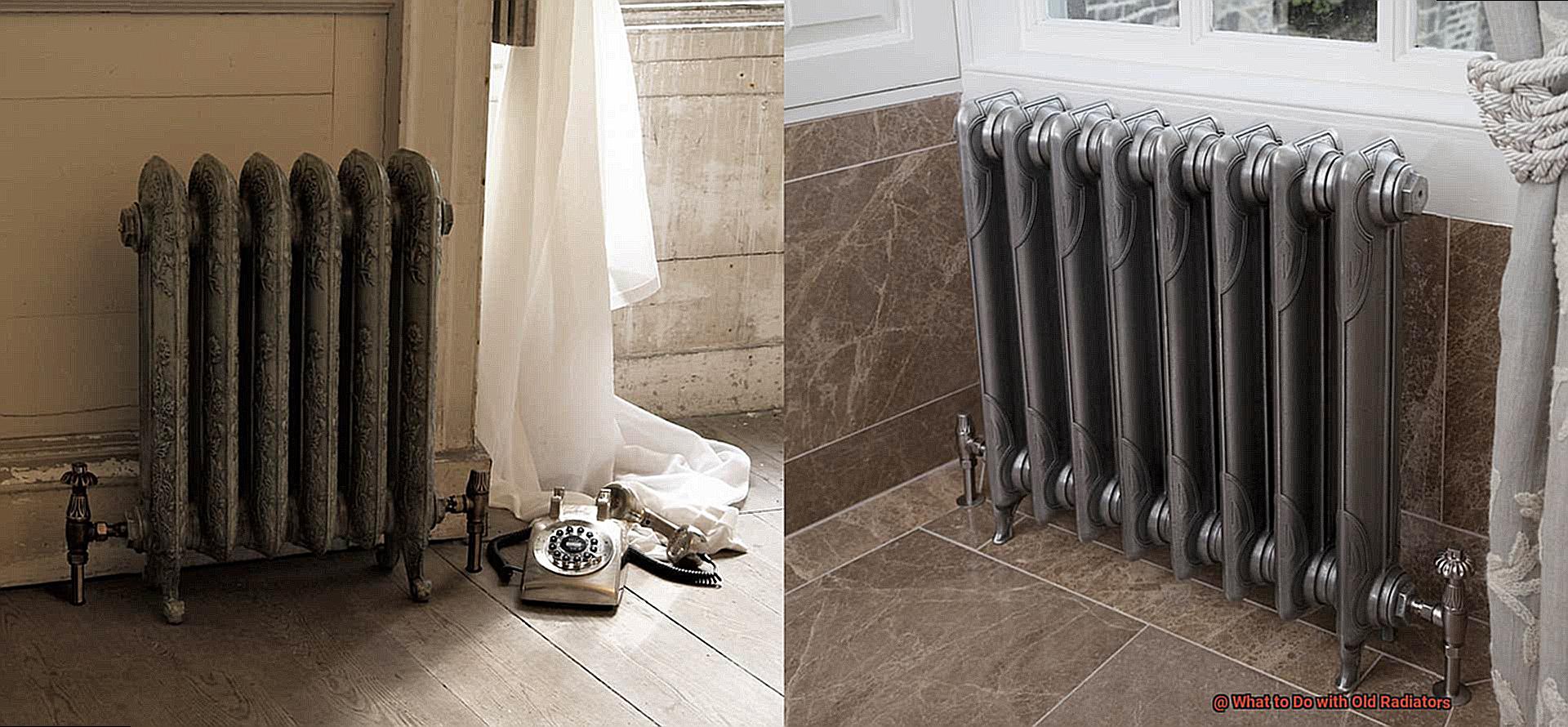
You can make a difference in someone’s life by simply donating something you no longer need. Many organizations and charities accept donations of old radiators.
However, it’s crucial to ensure that they are in good condition and still functional. Broken or damaged radiators are not useful, so be sure to inspect them carefully before making a donation.
A thorough cleaning before donating will also make it easier for the organization to use them right away. By donating your old radiators, you’re not only helping others but also benefiting the economy.
Your donation can save other organizations money that they would have had to spend on new heating equipment. Moreover, donating your old radiators can help reduce the demand for new resources and greenhouse gas emissions associated with manufacturing new heating equipment.
So, donating old radiators is a win-win situation for everyone involved. You give back to your community, reduce waste, preserve natural resources, help those in need stay warm during cold months, save other organizations money, and benefit the economy.
Working with a Professional Heating and Cooling Contractor
It might be time to consider working with a professional heating and cooling contractor to upgrade your heating system.
But before you jump in, it’s important to find a reputable contractor. Look for licensed and insured contractors with great reviews and warranties on their work.
This will ensure that your heating system is in good hands. Once you’ve found a contractor, they will come to your home to assess the situation and provide options for removing and replacing your old radiators.
They may suggest upgrading to more energy-efficient systems or other alternative heating solutions. Throughout the process, communication is key.
Don’t hesitate to ask questions about the removal and disposal process, as well as installation of any new systems. Make sure you understand the timeline and cost of the project before agreeing to any work.
Working with a professional heating and cooling contractor ensures that your old radiators are disposed of in a safe, environmentally-friendly manner. It also guarantees that your home’s heating system is up-to-date and efficient, saving you time, money, and hassle in the long run.
Ensuring Proper Disposal of Old Radiators
It’s important to dispose of them properly to protect the environment and comply with local laws.
One great option for disposal is recycling. Scrap metal yards often accept old radiators for recycling, as they are typically made of materials like copper and aluminum that can be repurposed.
Before taking your radiator in for recycling, make sure you drain any fluids from the unit and remove plastic or rubber components. This ensures that the valuable materials can be reused and reduces waste.
If recycling isn’t an option in your area, contact your local waste management facility or municipality to inquire about proper disposal methods. Some areas may offer special collection events for household hazardous waste, which can include old radiators.
Alternatively, they may have guidelines for proper disposal at a landfill. By following these guidelines, you can ensure that your radiator is disposed of safely and responsibly.
It’s important to note that some older radiators may contain hazardous materials such as asbestos or lead. In these cases, it’s crucial to handle the disposal process with care and follow any specific guidelines provided by your local waste management facility.
Don’t take any chances with potential health hazards – always prioritize safety. In conclusion, proper disposal of old radiators is essential for both environmental safety and legal compliance.
By researching and utilizing appropriate disposal methods, individuals can take care of their old radiators responsibly and protect the planet at the same time.
DPH2ypLlAHo” >
Conclusion
To sum up, don’t let old radiators become a burden.
You have various options to dispose of them properly and help the environment and society. Repurposing old radiators into furniture or decor can add a unique touch to your home.
Selling antique or vintage radiators can also bring in some extra cash. Recycling old radiators is an eco-friendly way to dispose of them while preserving natural resources and reducing waste.
Donating old radiators to charities or non-profit organizations can help low-income families, schools, and community centers stay warm during colder months while reducing the demand for new resources. Working with a professional heating and cooling contractor ensures safe disposal while upgrading to energy-efficient systems.
Follow proper disposal methods and guidelines provided by local waste management facilities, especially when dealing with hazardous materials such as asbestos or lead.
